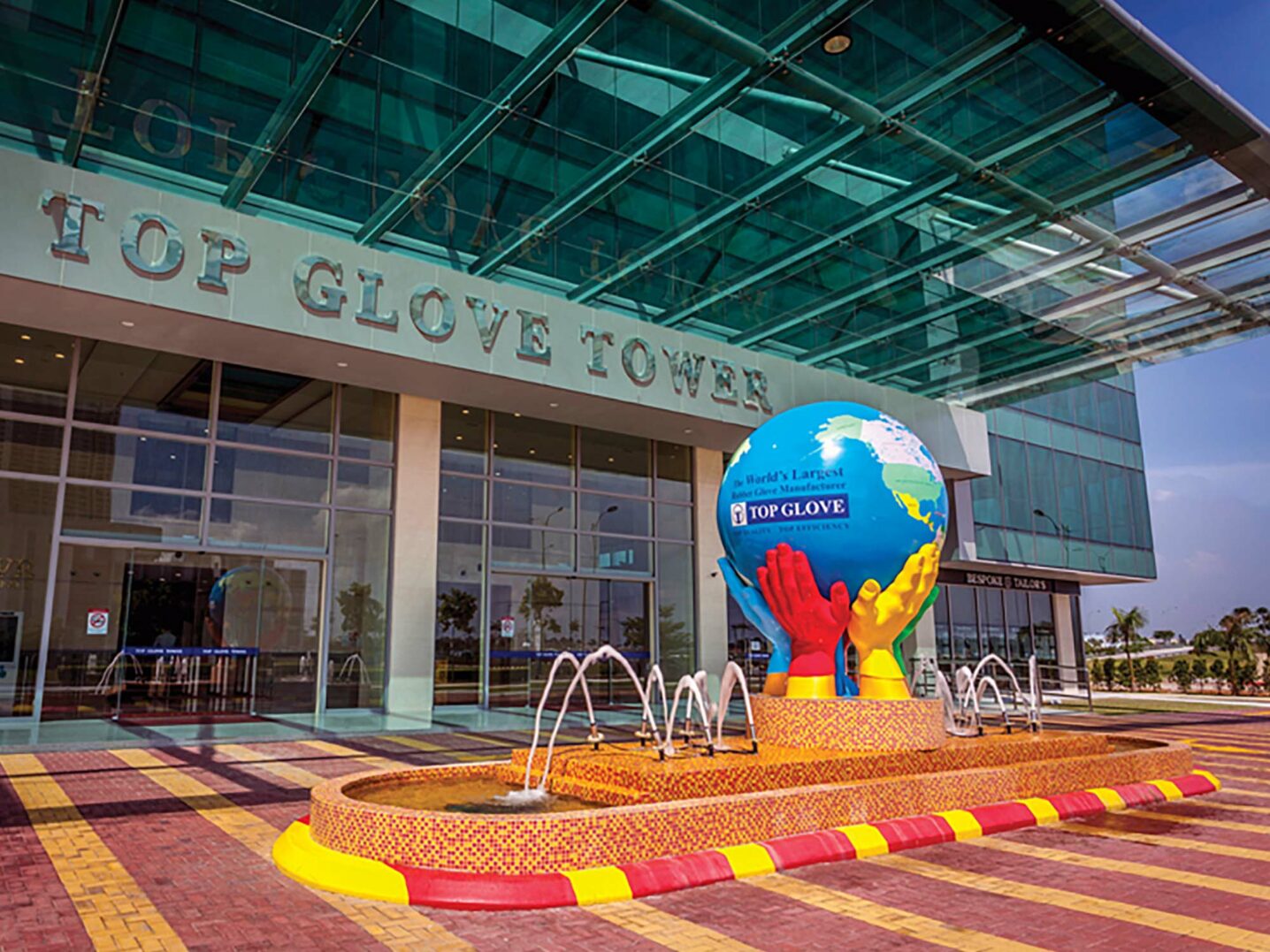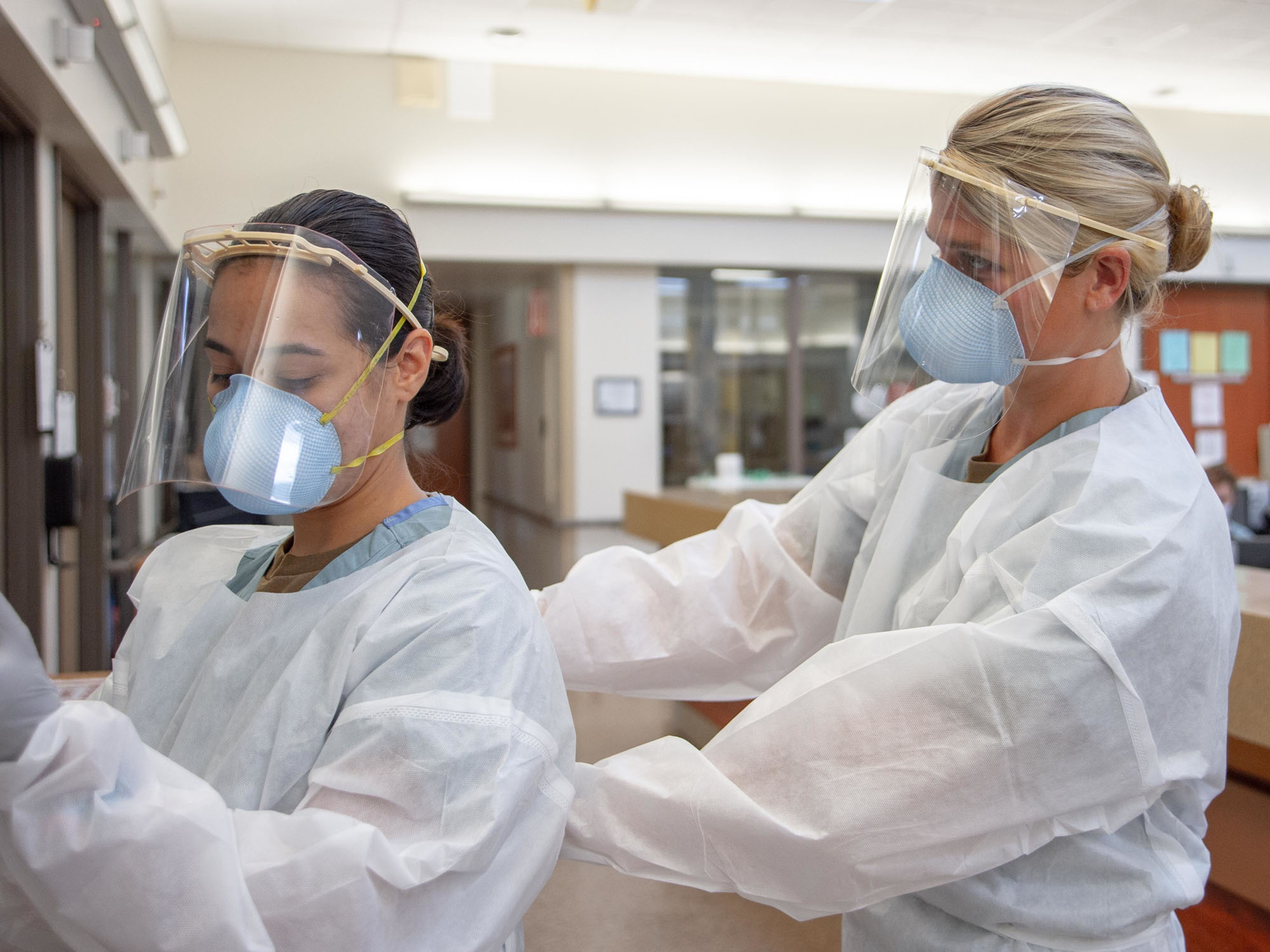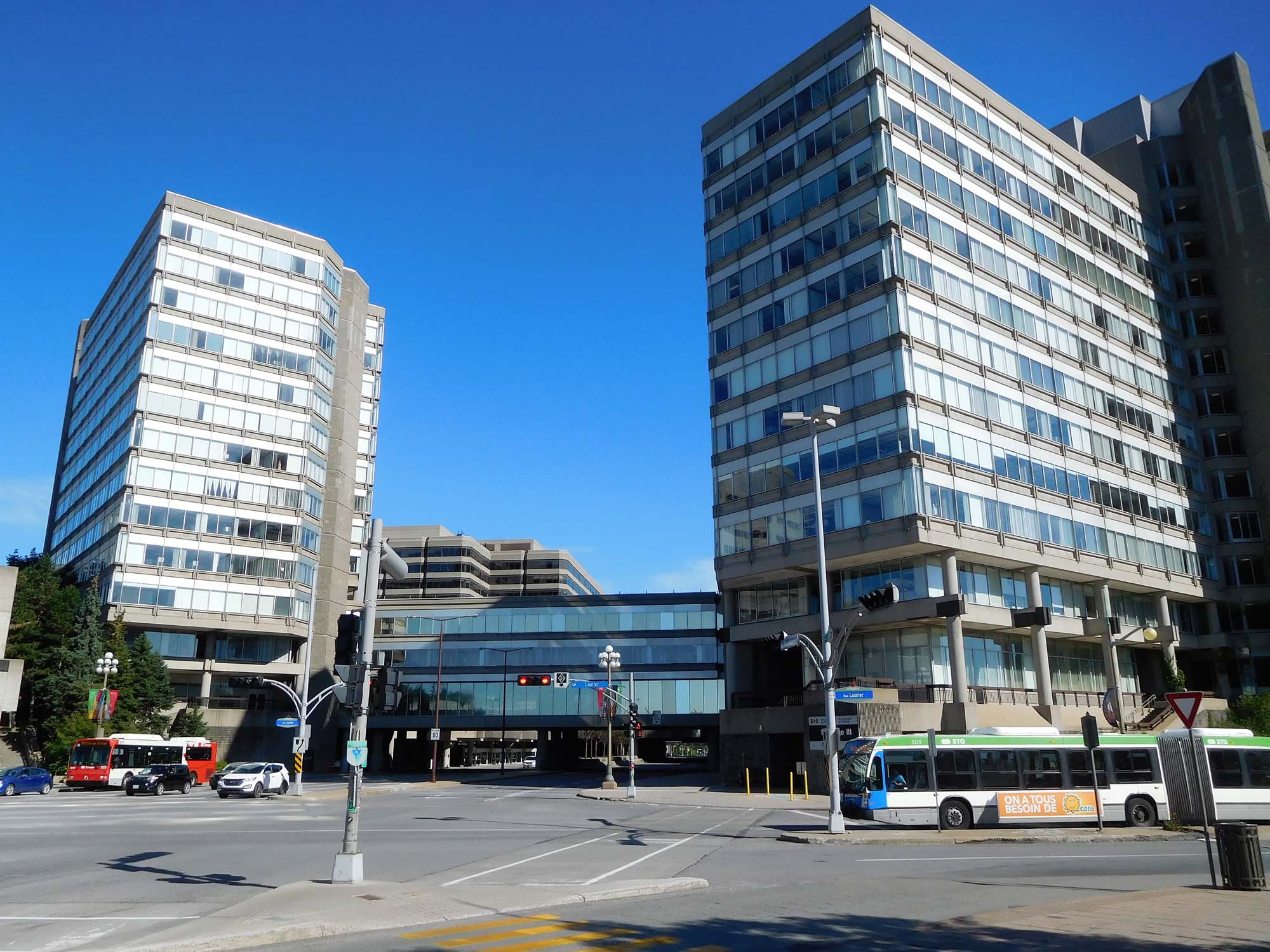Canada’s Supply Chains
Forced labour in Canada’s PPE supply chains

Summary
- In 2018, allegations about labour violations and forced labour at Malaysian factories owned by the world’s largest rubber glove producer, Top Glove[1] made international news.
- In January 2021, it was revealed that Canadian companies were among those importing Personal Protective Equipment (PPE) from Top Glove,[2] while U.S. Customs and Border Protection had banned goods from the company six months earlier. [3]
- At least 18 Canadian companies have imported goods from Top Glove, many of which supply various Canadian hospitals and health care facilities.
- In response to the U.S. ban, Top Glove committed to improving its labour conditions and stopping the use of forced labour.[4]
- In January 2022, allegations of forced labour at another Malaysian glove factory, Supermax Corp., hit international headlines. The gloves were being imported by Supermax Healthcare Canada, which had contracts with Public Services and Procurement Canada (PSPC) for distribution in Canadian healthcare facilities.
The Detail
Malaysia produces approximately 70% of the global supply of rubber gloves, including those used by Canadian hospitals and health care facilities during the COVID-19 pandemic.[5] Reports of workplace injuries, excessive hours and cramped living quarters at Malaysian glove factories have been well documented.[6] Most of the workers at Malaysian glove factories are migrant workers from neighbouring countries who pay high fees to recruitment agencies to gain access to employment. A July 2021 study by the Modern Slavery & Human Rights Policy and Evidence Centre in the UK, which surveyed approximately 1,491 workers and carried out interviews with migrant workers, manufacturers and government officials, revealed that with the onset of the pandemic, pressure on workers to meet increased production goals and overall working conditions at factories worsened, leading to a range of abuses characterized as forced labour,[7] as defined by the International Labour Organization’s forced labour indicators.[8] These abuses include:
- Factory management taking advantage of workers’ vulnerability, especially those with precarious migratory status;
- Deception by recruitment agencies and employers about the terms of work contracts in relation to hours worked for the pay received;
- Physical and sexual violence, intimidation and threats to deter workers from raising concerns related to high recruitment fees – which often leave workers with large amounts of debt – or other grievances; and
- Workers’ passports being retained by the recruitment agency, making it impossible for workers to leave the country or produce proof of their migratory status if stopped by police;
Finally, during the pandemic, some forced labour indicators at Malaysian glove factories actually increased, including restrictions on movement, isolation, abusive working and living conditions, and excessive overtime.

Top Glove
In the case of Top Glove, Malaysia’s largest rubber glove producer, reports dating back to at least 2018 have shown migrant workers working excessive hours to pay off debts to recruiters. The company’s managing director at the time vowed to put a stop to this practice.[9] Just over two years later, however, a January 2021 CBC Marketplace special aired which documented insider footage of Top Glove workers’ ongoing dangerous living conditions, debt bondage, excessive work hours, abusive working conditions, and cramped living quarters where approximately 25 people were living in one room with a common bathroom.[10]
Under the Canada-United States-Mexico Agreement (CUSMA), which came into effect in July 2020, it is illegal for Canadian companies to import goods made with forced labour;[11] however, according to Above Ground, Canada has not acted swiftly or effectively to address issues of forced labour in Canadian companies’ supply chains.[12] While U.S. Customs and Border Protection (CBP) banned goods produced in some of Top Glove’s Malaysian subsidiaries in July 2020, under the suspicion that the goods being made there used forced labour,[13] and in March 2021 found that Top Glove was indeed using forced labour,[14] Canada never followed suit and Canadian companies continued to import gloves from at least one Malaysian Top Glove factory.[15]
Since 2018, at least 18 companies have imported into Canada from Top Glove and its subsidiaries,[16] including Medline Canada and Superior Glove.[17] In September 2021, the U.S. lifted its ban after confirming that the manufacturing giant had “addressed all indicators of forced labor identified at its Malaysian facilities.”[18]
Supermax
In another case of alleged forced labour at a Malaysian glove factory, Supermax Corp., Canada continued to allow goods to enter the country – despite a U.S. ban on imports for the same factory.[19] One of the buyers importing into Canada was Supermax Healthcare Canada, who supplies medical gloves to Public Services and Procurement Canada (PSPC), the government agency responsible for procuring medical equipment and supplies for Canadian health and essential service sectors.[20] While PSPC ultimately put a hold on in-Canada deliveries from Supermax Healthcare Canada and terminated its contracts with the Canadian company while the allegations at its Malaysian supplier factory were being investigated,[21] the products themselves were never formally banned from entering the country.[22] According to Above Ground, Canada Border Services Agency “may take enforcement action only in rare cases…[and] doesn’t plan to publicly report which companies are involved.”[23]
Not only is Canada’s lukewarm response to this major human rights issue concerning, it points to the government’s failure to ensure that Canadian companies carry out effective human rights due diligence throughout their supply chain. This ‘needle in a haystack’ approach to uncovering egregious human rights abuses in the supply chains of companies importing to Canada emphasises the need for a comprehensive and legally binding approach to ensure products made for Canadian markets – including lifesaving PPE – are not made using forced labour, nor other abuses that violate workers’ rights and safety.

